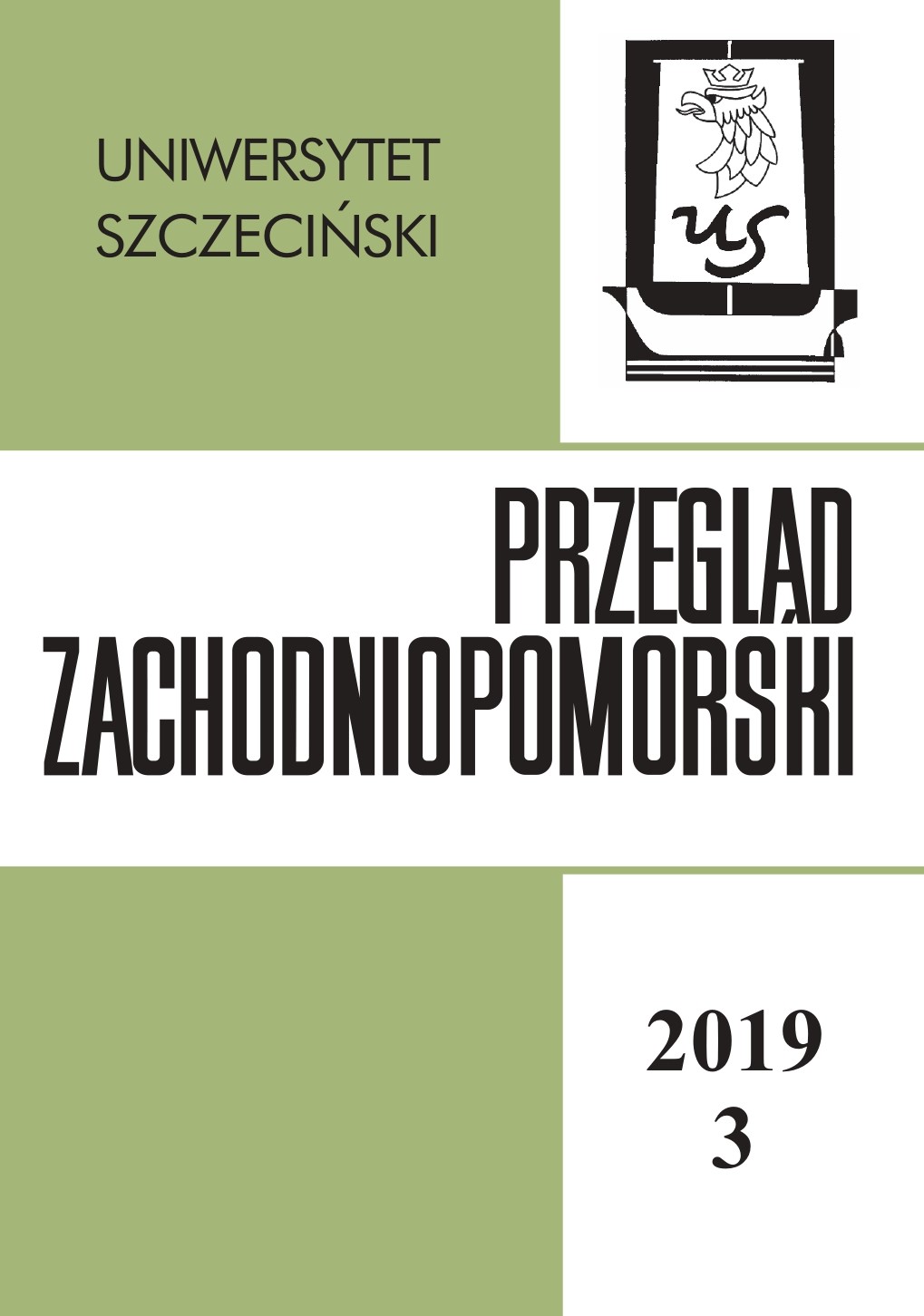Działalność Karola Czejarka – księgarza, współorganizatora instytucji i społecznego ruchu kulturalnego na Pomorzu Zachodnim, germanisty, autora licznych publikacji
The Activities of Karol Czejarek, a Bookseller, Co-organiser of the Sociocultural Movement and Its Institutions in West Pomerania, Germanist, and Author of Numerous Publications
Author(s): Maria JaremekSubject(s): History, Social Sciences, Language and Literature Studies
Published by: Wydawnictwo Naukowe Uniwersytetu Szczecińskiego
Keywords: Karol Czejarek; Germanist; translator
Summary/Abstract: The Activities of Karol Czejarek, a Bookseller, Co-Organiser of the Sociocultural Movement and its Institutions in West Pomerania, Germanist, and Author of Numerous Publica tions«] – it is almost a monograph presenting Professor Karol Czejarek, who lived in Szczecin in the years 1948–1973. He was a bookseller and animateur of culture in West Pomerania, a cyclist with achievements, Germanist, doctor of Humanities of Szczecin University, professor extraordinarius of the Aleksander-Gieysztor Academy of Humanities in Pułtusk, retired research worker and lecturer of the Institute of Applied Linguistics of Warsaw University, writer and editor. The article contains an appraisal of Karol Czejarek’s professional and academic work, and presents his interests, translations and activities on behalf of the reconciliation between Poland and Germany. Karol Czejarek, a grandson of Karol Czejarek, a Silesian Pole who lived in Zabrze (at that time called Hindenburg), and a son of Roman Czejarek and Maria Czejarek de domo Mellin, was born on August 12, 1939 in Berlin. During the Second World War his parents had bitter experience of relocation from their native Zabrze, and later expulsion from Berlin. Karol, who was then 8 years old, is an example of the fate of a child first relocated and later growing up in the post-war Szczecin. In 1953 his father died (in Szczecin), then he also lost his mother, who being German could not find a job and with the three-year-old Karol’s sister, Annemarie, in 1957 left for her native Ahrbergen, somewhere between Hannover and Hildeshaim, and Karol, a pupil of the Mieszko I Lycée no 2 in Szczecin, was left alone. In order to survived he had to take odd jobs. Thanks to his abilities and hard work he kept moving up consecutive rungs of his career to achieve senior posts in the Ministry of Culture, and later to devote himself to academic career. Karol Czejarek is a translator of books written by many outstanding German writers into Polish. His favourite writer is Hans Hellmut Kirst, who had been a Nazi, but later was the first to reveal the true nature of Nazism and the brutal methods of Hitler’s policy, and he warned against its return. Karol Czejarek translated the 40-volume Collective Works written by Kirst. Karol Czejarek’s own experiences, first of all concerning the harm caused to the Poles by the Nazis during the Second World War, must have shaped his interest in German studies, applied linguistics and research into relocation and expulsion of population groups, mixed marriages, and prospects of Polish-German reconciliation and cultural cooperation between those two nations, so that the cruel past would never happen again. An example of that cooperation is a publication edited by Karol Czejarek, Tomasz G. Pszczółkowski and Axel Schmidt-Gödelitz entitled Historia pamięcią pisana. Biografie polsko-niemieckie [»History Written with Memory. Polish-German Biographies«], Part 1 (2014) and Part 2 (2017). The conduct of Karol Czejarek is an exemplary behaviour, and the quotations written by many authors included in the text of the article confirm the thesis that we should not concentrate only on the past, but go forwards and build a new reality.
Journal: Przegląd Zachodniopomorski
- Issue Year: 34/2019
- Issue No: 03
- Page Range: 107-125
- Page Count: 19
- Language: Polish

